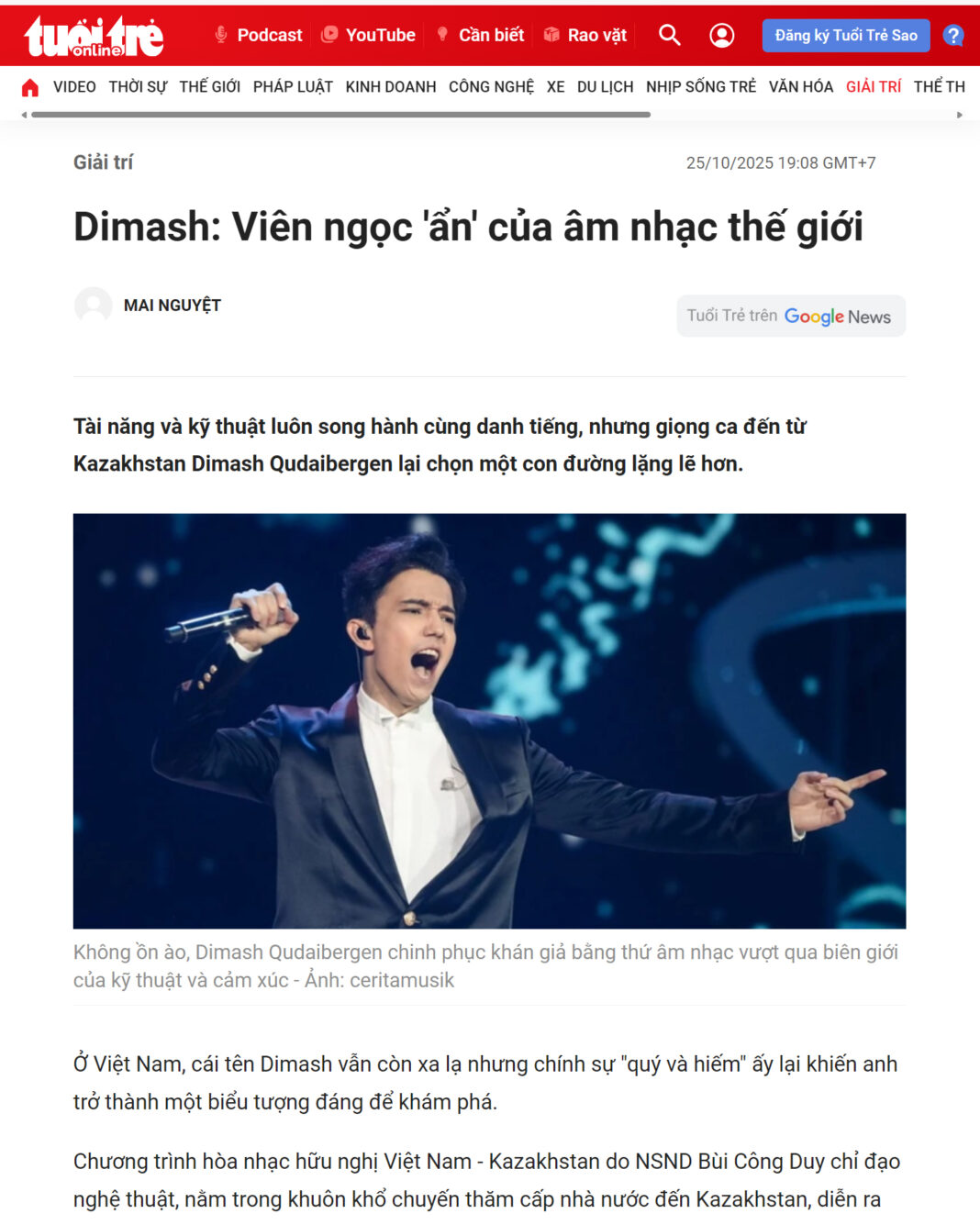Ahead of Dimash Qudaibergen’s upcoming performance at 8WONDER Winter 2025, one of the largest music festivals in Vietnam, to be held in Hanoi on December 6, 2025, many Vietnamese media outlets have been writing about the Kazakh artist.
One of Vietnam’s leading publications, Saigon Giai Phong, announced the festival with the following description:
“Dimash Qudaibergen is a world-renowned singer from Kazakhstan, distinguished by his wide vocal range spanning six octaves and five semitones. He has amazed audiences across the globe with his extraordinary ability to shift effortlessly from a deep, powerful baritone reminiscent of the romance of Russian ballads to rare, soaring high notes that seem to defy physical limits.
Millions of fans admire Dimash not only for his exceptional vocal technique but also for his gift of storytelling through music — touching hearts across linguistic and cultural boundaries.”

The major daily newspaper Tuoi Tre calls Dimash a “rare gem,” explaining:
“‘Precious’ — because of his talent; ‘rare’ — because he doesn’t follow trends.
In an era when music is dominated by algorithms, formulas, and appearances, Dimash follows his own path — blending classical music, pop, folk, and opera. He sings in more than 13 languages, from English, Russian, French, and Chinese to Arabic and Kazakh. Each language is his way of showing respect to the local culture and audience.
What truly makes Dimash special is his artistic integrity. He refuses to sign long-term contracts with major record labels in order to preserve his creative freedom.
No scandals, no gimmicks — Dimash releases only the music he believes is worthy.
In an industry where fame often comes quickly and fades just as fast, Dimash prefers to move slowly, steadily, and with purpose. He is like a jeweler polishing every note until it shines brilliantly.
This rare quality — loyalty to pure art, unaffected by public taste — is something only a few contemporary artists have preserved.
Dimash is proof that true music doesn’t need fanfare — only a sincere heart, a fine ear, and impeccable mastery.”

It is worth noting that foreign journalists not only recall with admiration Dimash’s first performance in Vietnam at the Ho Guom Opera in July this year, offering readers biographical features about the artist, but also show a deep interest in analytical articles about his work — studying the writings of music critics.
For instance, in the article “Dimash — The Voice from Heaven” published by the major Vietnamese news site VnExpress, one of the country’s most widely read online outlets, the journalist quotes The Astana Times:
“Despite his young age, Dimash Qudaibergen’s music possesses a depth that requires listeners to immerse themselves completely. Some of his songs express his reflections on the world and on modern tragedies such as war, hunger, and natural disasters.”
The publication emphasizes that humanity needs artists like Dimash — those capable of conveying profound ideas naturally:
“Dimash Qudaibergen does not overwhelm his audience or demand admiration. Instead, he embodies the light within each of us — something we must cherish and share with others.”


